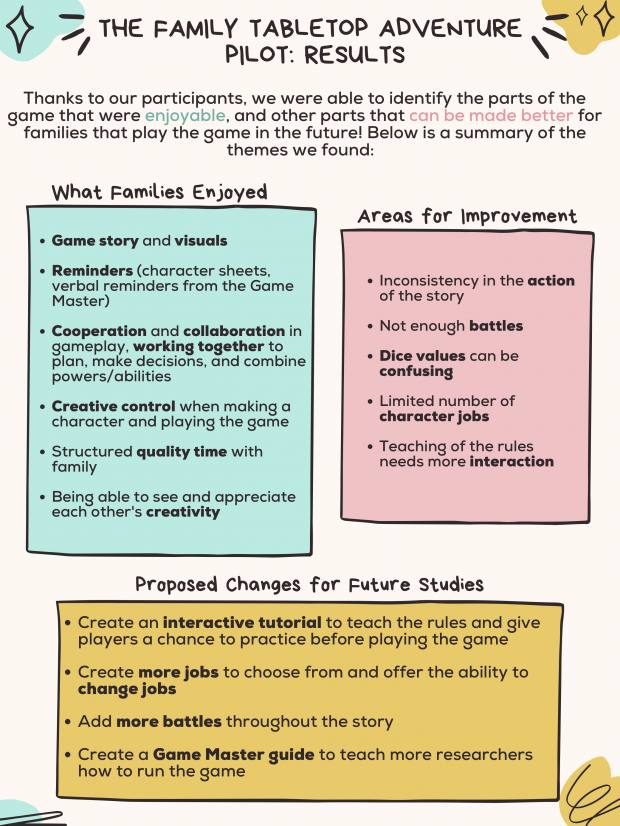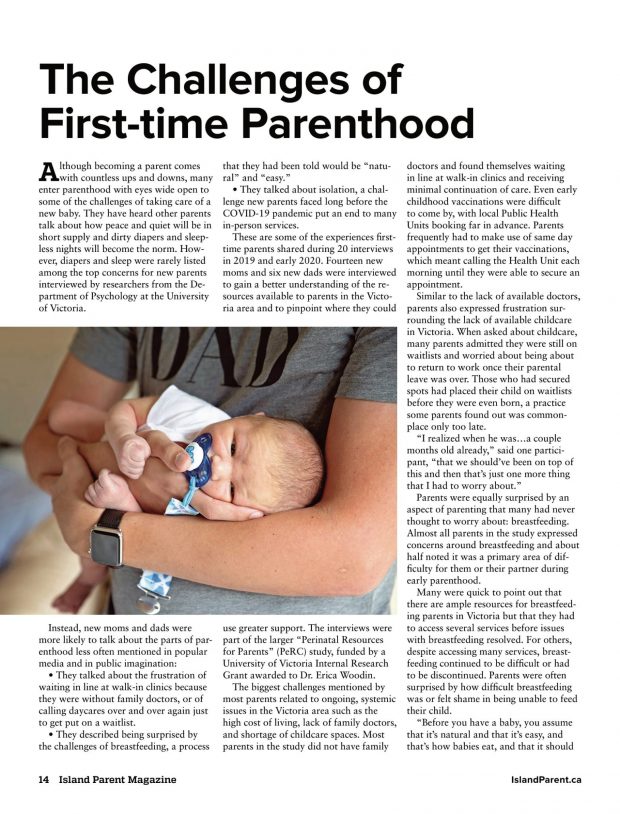Gender Differences in Romantic Relationship Functioning for Young Adults with ADHD
For her Honours thesis, Rachel Mallinson (supervised by Dr. Woodin) examined the impact of gender, gender expectations, stress, and anxiety on relationship functioning in 171 young adults with ADHD. Research increasingly suggests that women present with an altered set of ADHD symptoms, increased mental health concerns, and greater impairment in their romantic relationships. ADHD symptoms can be uniquely problematic for women because ADHD-related behaviours are incongruent with expectations for female behaviour.
Using an online survey, Rachel found that more ADHD symptoms were correlated with more stress and anxiety, and less relationship efficacy in both males and females, and stress helped explain these pathways. Contrary to hypotheses, more ADHD symptoms was linked with less masculinity and was unrelated to femininity. Women’s ADHD symptoms were linked with attachment anxiety and avoidance, plus increased perpetration and victimization of IPV. Overall, there is a highly complex association between gender and relationship distress for individuals with ADHD, so information and interventions should be tailored to the separate needs of men and women. Find the study page here.
Healthy Queer Relationships
Sam Bottrill undertook an independent study, in the form of a digital ethnography supervised by Dr. Woodin and Lorna Breen to understand the unique features of queer relationships. Specifically, the objective of this study was to use reflexive qualitative analysis of public, online forums to find common themes related to relationship satisfaction, identity, and functioning in the public online discourse on queer relationships and to contribute a queer perspective to the direction of relationship psychology.
Fifty public posts were gathered and analyzed using Dovetail and MAXQDA software. Explore a visual representation of the specific themes found here. For more details, visit the study page.

Barriers in University for Students with Mental Health Challenges
For her dissertation, Kari Duerksen, alongside Dr. Erica Woodin, Chelsea Colcol, Natalia da Costa, Maya Seymour, Lucy Rohatynchuk, Sarah Jones, and Camryn Anderson completed a research study on structural barriers to higher education for students with personal experience of mental health challenges.
Study one involved completing a 30-45 minute online survey to understand participants’ experience of structural barriers, discrimination, sense of belonging at university. Study two invited current and former UVic students to engage in workshops where information on barriers to self-advocacy was collected. Thank you to all participants!
This project provided valuable information about the barriers students face, which we are using to advocate for change to improve the accessibility of university. Stay tuned for results and resources developed from the project!
 Follow their Instagram @mentalhealthbarriers.
Follow their Instagram @mentalhealthbarriers.
For more information, email mentalhealthbarriers@gmail.com.
Empathy & Stress in New Parents
For her Honours thesis, Emily Spargo (supervised by Dr. Woodin) used data from the Partners to Parents study (below) to examine partner empathy as a potential buffer against the impact of stress, depression, and destructive communication on relationship satisfaction across the transition to parenthood. For many intimate partner, early parenthood is accompanied by a sudden drop in relationship satisfaction. However, not all couples experience this decline, suggesting that adaptive processes such as empathy help some parents navigate the transition more effectively.
This research expands the current literature on new parents by describing vulnerabilities that impede the use of adaptive processes such as empathy to buffer against relationship distress over time. Our findings support the use of acceptance-based couple interventions in early parenthood, and the development of accessible psychoeducation programs that could help couples know what to expect after the birth of their first child. See the more detailed research poster here.
Family Tabletop Adventure Pilot Study
The UVic Family Tabletop Adventure Pilot Study was conducted by graduate student Lorna Breen as a part of her Master’s thesis research under the supervision of Dr. Erica Woodin. This research used pilot testing of a brand-new online family adventure game with family groups in order to:
1. Gather feedback on the game and how it may be improved for use in future studies on family processes
2. Investigate how families play games together
Participation in this study involved 4-6 online video sessions with the researcher once per week. Families began by meeting the researcher and learning the rules of game, followed by two to four gameplay sessions and a family interview session as well as online questionnaires. Stay tuned for more research from Lorna on this topic!
Marijuana and Relationships Study
This study was conducted by Patricia Tibrea for her Honours thesis, and explored the various relationships and interactions between self/partner marijuana use and the type of communication style that couples engage in during their conflict resolution phase, specifically demand-withdraw, mutual avoidance, and constructive communication.
Research of this type is important because having healthy relationships is important to one’s well-being. One of the crucial factors that are conducive to achieving relational satisfaction is thorough communication, especially during conflicts. If this is not present or is lacking, conflicts will likely arise, and satisfaction will decrease. This research gave insight to couples on the possible associations between their marijuana use habits and relational satisfaction.
The Partners to Parents Study
The Partners to Parents Study recruited couples who were expecting their first child to help us understand how romantic relationships adjust through the transition to parenthood. Inclusion criteria required participants to be at least 17 years old, living together, able to read and write in English, and be expecting their first child.
Couples first came to UVic for a lab visit during the third trimester of pregnancy to fill out a number of questionnaires about themselves and their relationship. In the same visit, they completed an interview, and participated in some prompted conversations with their partner. Next, couples were re-contacted on their baby’s first, second, and fourth birthdays and were asked to fill out some more questionnaires about their experiences in the last year.
This study helped us understand more about how couples go through the process of becoming parents, and how this process affects partners and their new families. Results from this study have been presented at numerous national and international research conferences, have been published in several peer-reviewed research journals, and have been presented at a variety of community organizations across Vancouver Island.
Perinatal Resources for Couples Study
The Perinatal Resources for Couples study, led by Dr. Erica Woodin and graduate student Lauren Matheson, explored the joys and challenges of becoming a parent and resources available to first-time parents in the Greater Victoria Metropolitan Region. Interviews were conducted with new parents asking about their experiences becoming a parent and how they accessed services in the prenatal and perinatal periods.
For more information, Lauren Matheson had an article published in Island Parent Magazine on this topic:








